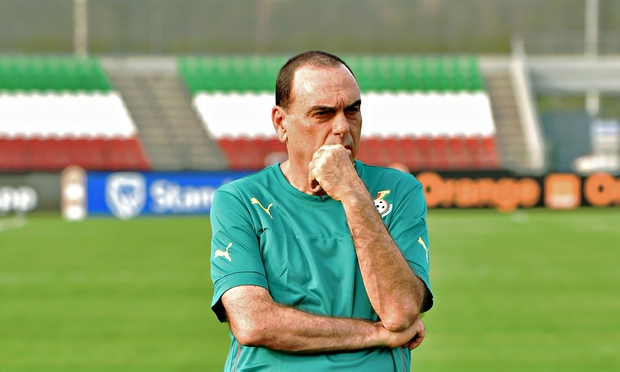Even though my beloved, but in most instances, disappointing Zebras haven’t qualified for the on-going Africa Nations Cup Finals in Equatorial Guinea, I have been able to catch some of the games. On the field, it has been a rather lukewarm, slow tournament that hasn’t been exciting.
It seems like most teams, with most of them under the tutelage of big name high earning Europe Managers, are just going through the motions. And that brings me to this week's discussion.
Do these European coaches bring any marked value to African football? Personally I don’t think so.
Although not there, my own Botswana has a European coach and I have come to accept that. I did not agree with the decision, but have learnt to accept that we have a European as a coach, and I support him. Mind you, this is not based on whether our coach ids good or not, but on the fact that I would have wanted him at the development structures where I feel he can make more of an impact.
For me, most of these Europeans should rather be at development structures. For the purposes of this piece, let’s call them foreign coaches, as they are foreigners in Africa. I for one still feel that Peter James Butler should be at the Development Structures rather than coaching the senior National team.
That way he will have a hand in developing players from a young age and getting them through the different age groups until they are ripe to perform at the seniors’ level. Other see it differently though.
Now back to the African Nations Cup; 13 of the 16 teams there are coached by ‘foreign’ coaches and looking by the standard of the football on display, I wonder what these coaches are bringing that our fellow Africans cannot.
For one, Ghana played much better under the recently fired Kwesi Appiah than currently under the Israeli Avram Grant. And I’m pretty sure Grant earns way more than what Appiah earned. Sad but true. There are those coaches who have made Africa their haven and move from national team to national team.
Alain Giresse, Henri Kaszpercak, Claude Leroy and Herve Renard immediately come to mind. Yes; they have won Championships, but with the same support, chances are that our own African brothers can also win Championships.
Botswana has a long history of hiring foreign coaches and they always come here and ‘insult’ us instead of getting results. Remember one Jeff Butler who instead of winning games went on and on about how our football was way backwards. That was his opinion and if he thought so, then he should not have come.
Despite many years under foreign coaches, we qualified for our maiden AFCON finals under the tutelage of our own local. Some say it was luck and a fluke. Yep; but then one makes their won luck. You don’t sit and get lucky; you do something and you will get lucky.
For me we need to develop and support our own. We need to resource our local coaches as much as we resource these foreign coaches. Most of these foreigners are money grabbing mercenaries who are here for a quick buck, making money to go spend in Europe or wherever they are from.
I have never heard of an African even being an assistant coach at a European team. So why should we rely on them so much and neglect our own. The same coaching licences and certificates that theses foreigners have, our own African coaches also posses.
We are always quick to judge, criticise and fire our own while we treat these foreigners with kid’s gloves. I can relate that to my own Botswana. These Europeans come here and dictate to us, rather than the way around. Instead of advancing our football they look down on us, and see Africa as a cash cow.
As much as we can use their expertise, we should strive to develop and empower our own. Like I already posited, they can be used in development structures to help develop youngsters and train and advise local coaches. That way we will even spend less, as well as promote Patriotism.
By Thuso Palai
